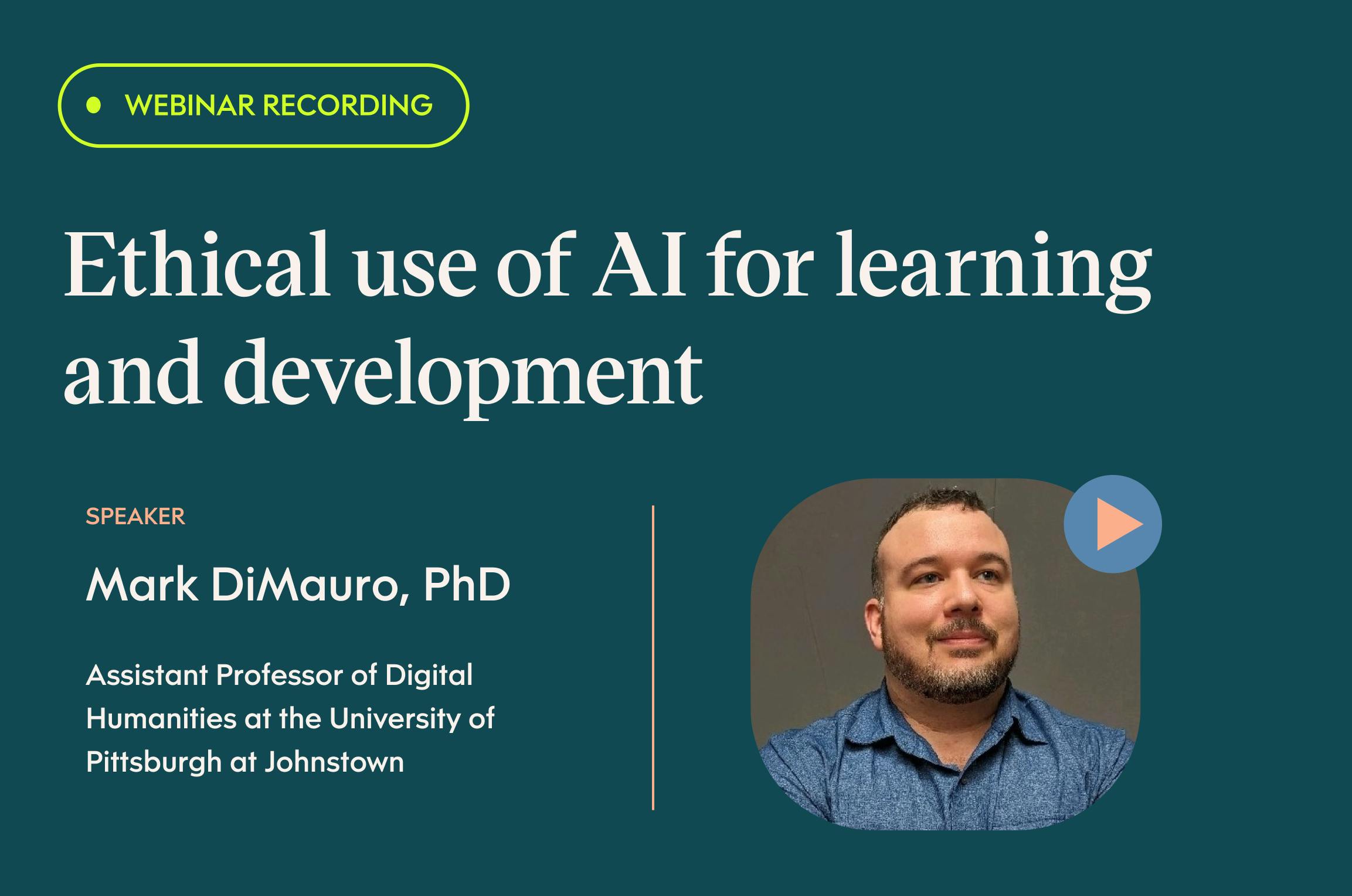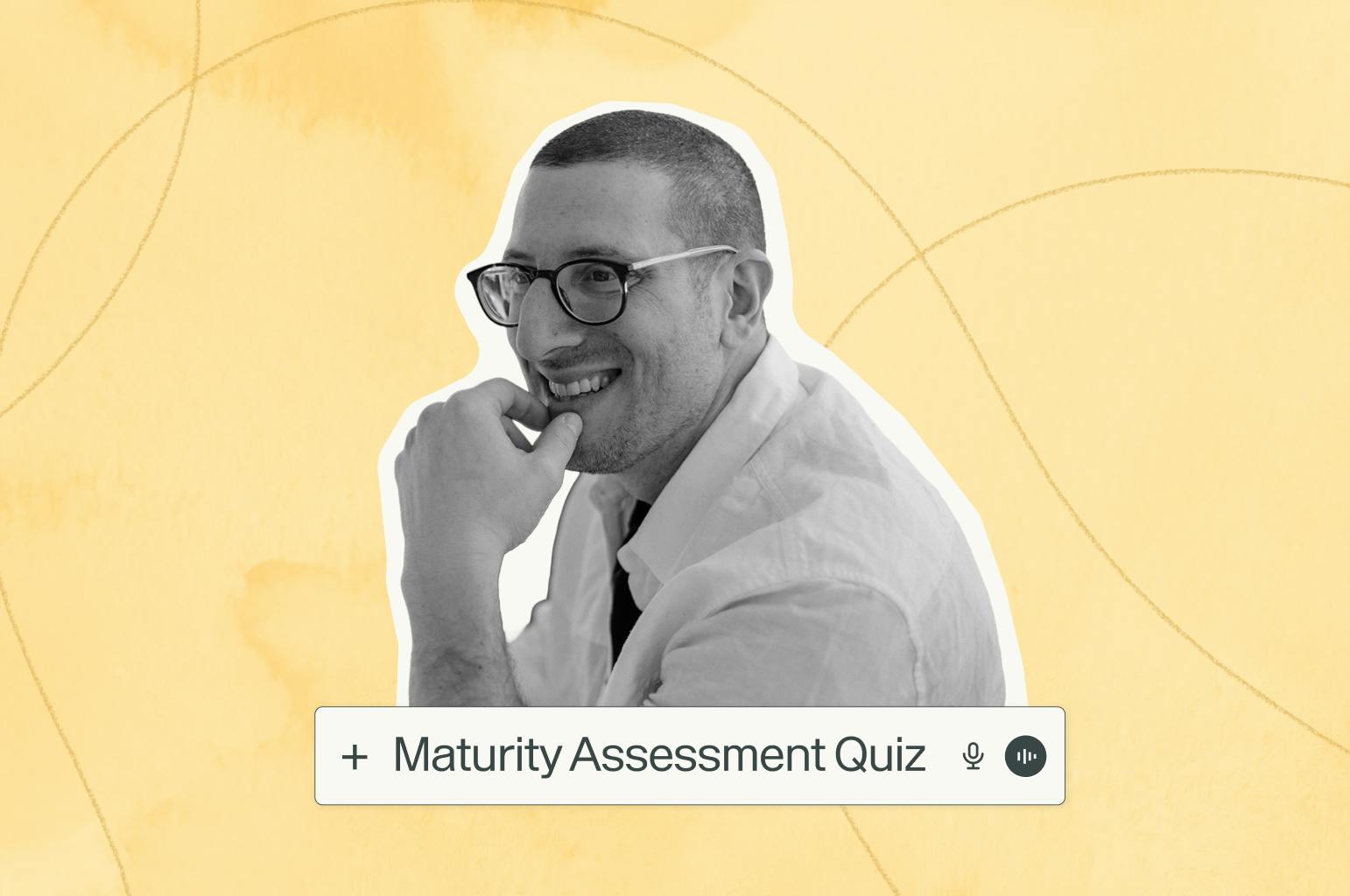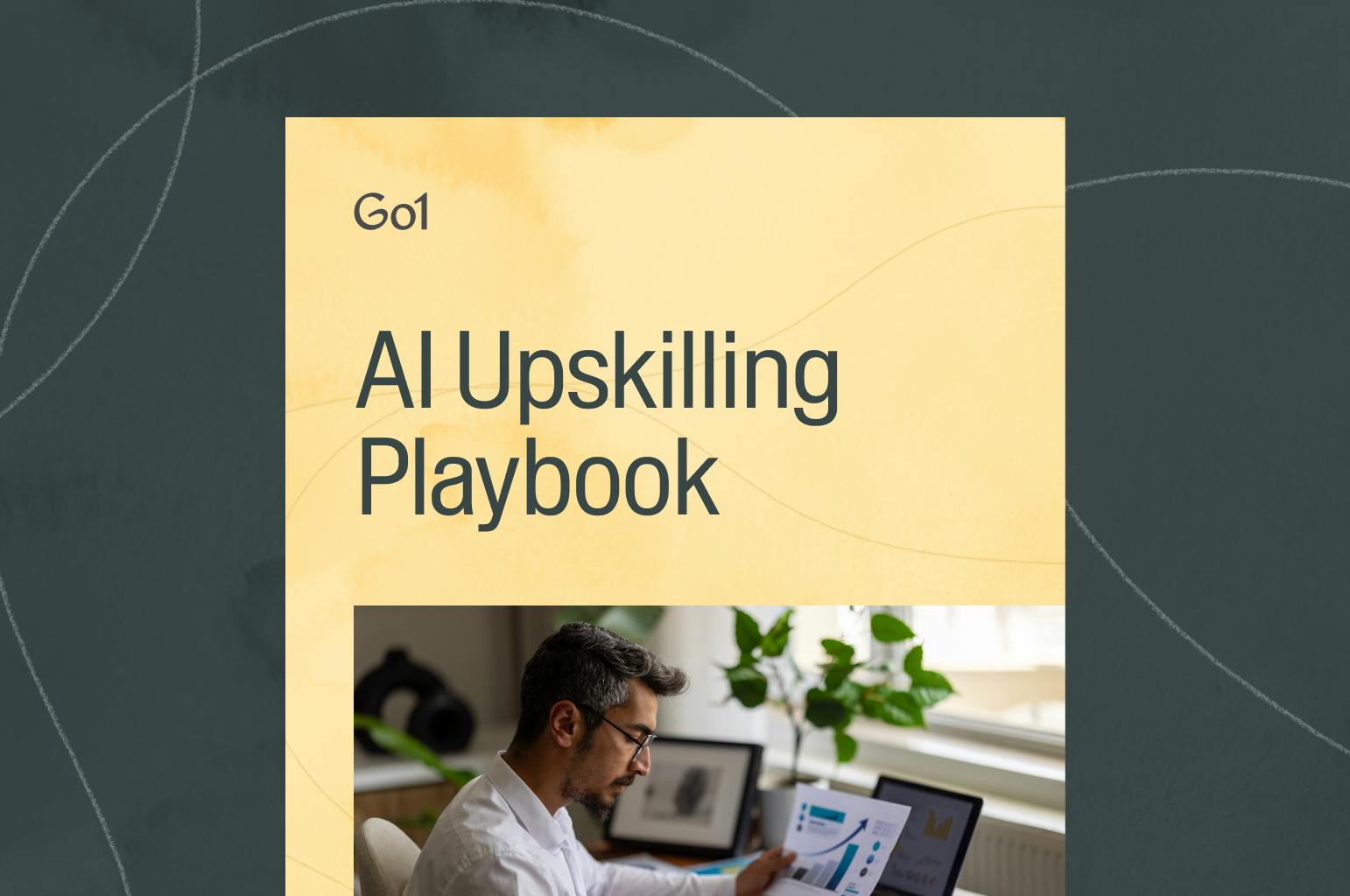Ethical use of AI for learning and development

AI is designed to support, not supplant, humans, especially in critical areas like education and development. In our recent webinar on the ethical use of AI, Mark DiMauro, PhD, emphasized the importance of responsible AI application, including the full disclosure of AI usage, adherence to ethical and moral standards, and the preservation of integrity in its applications. This transparency in the education of AI is crucial, and deployment of AI tools should follow a comprehensive framework that addresses ethical, moral, legal, and integrity issues. This structured approach prevents misuse and ensures that AI enhances learning and development while maintaining ethical standards.
What were Mark's biggest takeaways on how to approach AI ethically? Let's get into his advice, warnings, and approach to using this new technology effectively and responsibly.
Transparency and ethical standards
One of the core themes of the webinar was the importance of transparency in AI use. Transparency is crucial, and AI deployment should follow a comprehensive internal framework that addresses any ethical, moral, and legal issues transparently. DiMauro stressed that all stakeholders, including employees, trainers, and administrators, must be fully aware of how AI is being used within the organization at all levels.
This transparency is crucial not only for organizational integrity but also for building trust with stakeholders and informing all parties on the data being used and the decision-making processes involved. Everyone must understand the capabilities, risks, and limitations of AI technologies in all settings for success.
Supporting human judgment with AI
Mark highlighted that while AI can provide valuable data-driven insights, it's humans who can consider the contextual and ethical nuances that AI might not fully grasp or may hallucinate in making final or ethical decisions. Use AI to support your judgments, rather than relying on it entirely. Human judgment and critical thinking skills are vital in ensuring that AI-generated recommendations align with organizational values and goals.

DiMauro emphasized the need for continuous monitoring and evaluation of AI algorithms to ensure they aren't biased or contradicting your organization's ethical standards. By involving humans in every step of the decision-making process, organizations can utilize AI effectively, mitigate potential risks, and improve the overall effectiveness of the AI technologies they employ. Ultimately, the successful integration of AI with human judgment can lead to more informed and ethical decision-making, benefiting internal and external stakeholders.
AI is transforming content creation, but not completely replacing writers
"There will be some kind of disruption recomposition of what our roles look like," Mark explained, referring to the role of educators and trainers. "The roles should become more fun, [with] higher leverage."
While AI is increasingly being used to generate content, it isn't expected to replace human writers. Instead, as Mark explained, we can expect it to transform roles, providing a higher level of work, creativity, and automation. AI allows writers, strategists, and instructional designers to focus on higher-value tasks such as strategy, without getting caught in the weeds of nuanced writing.
And good news for marketing teams, as Mark predicts, "AI-generated content is going to mean more content marketing jobs. Because people are going to get leverage faster — which means content marketing will meet goals faster, [and] marketers will get more budget to do more content marketing.”
Ethical framework and integrity
But what about ethical integrity, laws, and standards in AI? Mark dedicated a major part of the webinar to how you can build out a robust ethical framework for deploying AI at work. DiMauro emphasized that while AI has transformative potential, it must be governed by strict ethical standards to prevent misuse, mitigate risk, and avoid major backlash. Legal implications, data privacy, and the necessity of maintaining human control over AI technologies are critical considerations.
The development and deployment of AI in learning and development must adhere to a strict ethical framework, developed by experts for your organization, that respects moral and legal standards. Mark advocates for a structured approach to AI implementation, which includes safeguards against misuse to ensure that the technology is used to enhance learning experiences, without compromising ethical standards.

We are seeing firsthand in the world right now that there is an inherent need for the responsible and ethical use of AI. Mark acknowledged that while AI has the potential to greatly benefit society, it also poses certain risks and challenges that need to be addressed. He emphasized repeatedly that AI shouldn't be used to handle sensitive data, due to potential security risks. He noted, “It's really critical and it's really important to use them [AI tools] for a purpose and with ethical, moral, and integral guidelines in mind." He emphasized that as AI evolves, it's crucial to ensure that it is being used responsibly, securely, and ethically.
While there is no standardized law or governance at this time for the ethical use of AI in organizations, or specifically in learning and development, Mark recommends starting with these three steps internally:
- Creating a code of ethics for AI developers and users
- Implement transparency and accountability measures
- Continuously monitor and evaluate the impact of AI on society
Everyone should be prepared for a future with AI at work
Even those who may not be directly impacted by AI (yet) should know the implications and benefits it currently brings to the world of work. The future of AI in learning and development is promising, but it hinges on our ability to implement it responsibly. Mark DiMauro's detailed insights and expert advice provide a roadmap for professionals looking to integrate AI into L&D settings ethically.
By adhering to high ethical standards and ensuring human oversight of AI, it can be a powerful tool for enhancing learning and development, rather than a disruptive force.
Watch the full webinar to hear all of Mark's detailed advice on ethical AI in learning and development, including real examples, considerations, and expert guidance.
The ethical implications of AI can be confusing, but we're here to demystify AI and help you take a responsible approach to AI usage.
Dig deeper into the topics with this recommended article, Building trust and transparency in generative AI learning.
Related Articles

Application Guide: How to use the Go1 AI for L&D Maturity Assessment to assess our workforce AI capability

AI upskilling made clear: A practical guide to building an AI-ready workforce

Go1 welcomes PepTalk

5 Data-Backed Insights Shaping the Future of AI in Workplace Learning

Train smarter, spend less
Train smarter,spend less
Connect with a Go1 expert to explore the best training options for your organization—no pressure, just solutions that work.